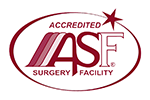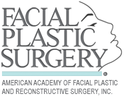The Recovery Revolution: How Wellness-Focused Healing is Transforming Facial Plastic Surgery Outcomes in Beverly Hills

The landscape of facial plastic surgery recovery has undergone a dramatic transformation in Beverly Hills, where patients increasingly seek not just exceptional surgical results, but optimized healing experiences that support both their physical recovery and overall well-being. Dr. Ben Talei and leading facial plastic surgeons throughout Los Angeles are embracing a revolutionary approach that integrates cutting-edge surgical techniques with comprehensive wellness protocols designed to accelerate healing, minimize downtime, and enhance long-term outcomes.
This paradigm shift represents more than just improved post-operative care—it’s a fundamental reimagining of the entire surgical journey, where recovery becomes an active process of restoration and renewal rather than simply a period of waiting to heal.
Understanding the New Recovery Paradigm
Beyond Traditional Post-Operative Care
Traditional facial plastic surgery recovery often focused solely on preventing complications and managing immediate post-operative concerns. Today’s wellness-integrated approach recognizes that optimal healing involves supporting the body’s natural regenerative processes through multiple interconnected systems including nutrition, sleep optimization, stress management, and targeted therapeutic interventions.
This holistic philosophy acknowledges that patients who feel better during recovery not only heal faster but also achieve superior aesthetic outcomes. When the body’s healing mechanisms function optimally, scarring is minimized, swelling resolves more quickly, and final results appear more natural and refined.
The Beverly Hills aesthetic surgery community has become a pioneer in developing these comprehensive recovery protocols, driven by patients who expect excellence in every aspect of their surgical experience.
The Science of Accelerated Healing
Recent advances in understanding cellular regeneration, inflammation response, and tissue repair have revealed numerous opportunities to optimize the healing process. Modern recovery protocols leverage this scientific knowledge to create conditions that promote faster, more complete healing while reducing the risk of complications and suboptimal outcomes.
Key areas of focus include managing inflammatory responses, supporting cellular energy production, optimizing blood flow and oxygenation, maintaining proper protein synthesis for tissue repair, and ensuring adequate micronutrient availability for healing processes.
Pre-Operative Wellness Optimization
Nutritional Preparation for Surgery
The foundation of exceptional recovery begins weeks before surgery through strategic nutritional optimization. Beverly Hills patients are increasingly embracing pre-operative nutrition protocols designed to ensure their bodies are in peak condition for healing and recovery.
Essential nutritional preparation includes:
- Protein Optimization: Ensuring adequate protein intake to support tissue repair and collagen synthesis
- Micronutrient Assessment: Evaluating and correcting deficiencies in vitamins and minerals crucial for healing
- Anti-Inflammatory Foods: Incorporating foods rich in omega-3 fatty acids and antioxidants to support optimal inflammation response
- Hydration Protocols: Establishing proper hydration habits that will continue through recovery
- Supplement Integration: Adding targeted supplements known to support healing and reduce inflammation
Sleep and Circadian Rhythm Optimization
Quality sleep is fundamental to healing, yet many patients underestimate its importance in surgical outcomes. Progressive Beverly Hills practices now include sleep optimization as a standard component of pre-operative preparation.
Sleep optimization strategies focus on establishing consistent sleep schedules, creating optimal sleep environments, addressing any underlying sleep disorders, and developing sleep hygiene practices that will support recovery when normal sleep positions may be temporarily limited.
Stress Management and Mental Preparation
Psychological preparation significantly impacts both surgical outcomes and recovery experiences. Chronic stress elevates cortisol levels, which can impair immune function, slow healing, and increase the risk of complications.
Modern pre-operative preparation includes stress reduction techniques, meditation and mindfulness training, visualization exercises for positive outcomes, and anxiety management strategies specific to surgical recovery.
Advanced Recovery Technologies
Regenerative Medicine Integration
Beverly Hills facial plastic surgery practices are increasingly incorporating regenerative medicine techniques that harness the body’s own healing mechanisms to accelerate recovery and improve outcomes.
Platelet-Rich Plasma (PRP) therapy uses concentrated platelets from the patient’s own blood to stimulate healing and tissue regeneration. When applied during surgery or in the immediate post-operative period, PRP can reduce inflammation, accelerate wound healing, and improve final aesthetic results.
Platelet-Rich Fibrin (PRF) represents an evolution of PRP technology, providing sustained release of growth factors over extended periods. This natural healing accelerator can significantly reduce bruising, swelling, and recovery time while promoting optimal tissue repair.
Light Therapy and Photobiomodulation
Low-level laser therapy and LED light treatments have gained significant traction in post-operative care due to their ability to reduce inflammation, accelerate cellular healing, and minimize scarring without any invasive interventions.
These technologies work at the cellular level to enhance mitochondrial function, improve circulation, and stimulate collagen production. Patients can often begin light therapy treatments within days of surgery, providing immediate benefits during the most critical healing period.
Lymphatic Drainage and Circulation Enhancement
Manual lymphatic drainage massage has become a cornerstone of advanced recovery protocols. These specialized techniques help reduce swelling, improve circulation, and accelerate the removal of metabolic waste products that can impede healing.
Professional lymphatic drainage treatments are typically begun within the first few days after surgery and continued throughout the initial recovery period. Many patients report dramatic improvements in comfort and appearance when these treatments are incorporated into their recovery plan.
Personalized Recovery Protocols
Individual Assessment and Customization
Modern recovery approaches recognize that each patient’s healing journey is unique, requiring personalized protocols based on individual factors including age, overall health status, surgical complexity, lifestyle factors, and personal healing goals.
Comprehensive pre-operative assessments now evaluate not just surgical candidacy but also healing potential and recovery optimization opportunities. This might include laboratory testing to identify nutritional deficiencies, sleep study recommendations for patients with suspected sleep disorders, and stress assessment to develop appropriate management strategies.
Technology-Assisted Monitoring
Digital health technologies are transforming how recovery progress is monitored and optimized. Wearable devices can track sleep quality, activity levels, and physiological markers that indicate healing progress.
Some practices provide patients with specialized apps that allow them to document their recovery progress, communicate with their surgical team, and receive personalized recommendations for optimizing their healing process based on real-time data.
Nutrition and Supplementation Strategies
Post-Operative Nutritional Support
Recovery nutrition goes far beyond simply eating well. Strategic nutritional support during the post-operative period can dramatically accelerate healing while supporting optimal aesthetic outcomes.
Key nutritional strategies include:
- High-Quality Protein: Supporting tissue repair and collagen synthesis with complete amino acid profiles
- Vitamin C Complex: Essential for collagen formation and immune function, often provided in higher doses during active healing
- Zinc Supplementation: Critical for wound healing and immune function, frequently depleted after surgical stress
- Omega-3 Fatty Acids: Providing anti-inflammatory support and supporting healthy tissue formation
- Antioxidant Support: Protecting healing tissues from oxidative stress while supporting cellular repair processes
Hydration and Detoxification
Proper hydration supports every aspect of healing, from maintaining blood volume and circulation to facilitating the removal of metabolic waste products. Advanced hydration protocols may include electrolyte optimization, specific timing of fluid intake, and in some cases, IV hydration therapy for patients who struggle to maintain adequate oral intake.
Supporting the body’s natural detoxification processes helps ensure that metabolic byproducts of healing don’t accumulate and impede recovery. This might include specific foods, supplements, or therapies designed to support liver and kidney function during the recovery period.
Mind-Body Recovery Approaches
Meditation and Mindfulness Practices
The integration of meditation and mindfulness practices into facial plastic surgery recovery represents a significant advancement in patient care. These practices not only reduce stress and anxiety but also appear to have measurable effects on healing rates and pain perception.
Guided meditation specifically designed for surgical recovery helps patients visualize optimal healing, manage discomfort, and maintain positive outlook during challenging recovery periods. Many patients report that regular meditation practice significantly improves their overall recovery experience.
Stress Reduction and Emotional Support
Recovery from facial plastic surgery can be emotionally challenging, particularly during the initial period when swelling and bruising may temporarily obscure final results. Comprehensive recovery programs now include emotional support strategies designed to help patients navigate these psychological aspects of healing.
This might include counseling resources, support group access, or regular check-ins with trained staff members who can provide reassurance and guidance throughout the recovery process.
Visualization and Positive Psychology
Visualization techniques specifically designed for surgical recovery help patients mentally rehearse optimal healing while creating positive expectations for their results. These practices appear to have measurable effects on both healing rates and patient satisfaction with outcomes.
Positive psychology interventions help patients maintain optimism and resilience during recovery, which research suggests can have direct physiological benefits for healing and immune function.
Environmental Optimization
Creating Healing Spaces
The physical environment where patients recover plays a crucial role in healing outcomes. Beverly Hills practices are increasingly providing guidance on creating optimal home recovery environments that support healing and well-being.
Environmental considerations include air quality optimization, lighting that supports circadian rhythm regulation, temperature and humidity control for comfort, and creating peaceful, stress-reducing spaces that promote rest and relaxation.
Social Support Systems
Recovery occurs within social contexts, and the quality of social support significantly impacts healing outcomes. Modern recovery protocols include guidance on preparing support systems, communicating needs effectively with family and friends, and accessing professional support when needed.
Some practices facilitate connections between patients who have undergone similar procedures, creating peer support networks that can provide valuable encouragement and practical advice during recovery.
Activity and Movement Protocols
Graduated Exercise Programs
While rest is important immediately after surgery, appropriate movement and activity play crucial roles in optimal recovery. Modern protocols include carefully graduated exercise programs designed to promote circulation, prevent complications, and support overall well-being without compromising healing.
These programs typically begin with gentle movements and breathing exercises in the immediate post-operative period and gradually progress to more normal activity levels as healing permits. The timing and intensity of activity recommendations are highly individualized based on the specific procedures performed and individual healing progress.
Physical Therapy Integration
Some patients benefit from working with physical therapists who specialize in post-surgical recovery. These professionals can provide specialized techniques for managing swelling, maintaining range of motion, and optimizing posture during recovery when normal movement patterns may be temporarily altered.
Pain Management and Comfort Optimization
Multimodal Pain Management
Modern pain management approaches move beyond simply prescribing opioid medications to embrace comprehensive strategies that address pain from multiple angles while minimizing side effects and dependency risks.
Multimodal approaches might include targeted anti-inflammatory medications, topical pain relief applications, nerve blocks or local anesthetics for specific procedures, non-pharmacological interventions like ice therapy and positioning, and mind-body techniques for pain perception management.
Comfort Enhancement Strategies
Patient comfort during recovery extends beyond pain management to include strategies for managing the various discomforts associated with healing. This might include specialized pillows for optimal positioning during sleep, gentle skincare routines for sensitive post-operative skin, and techniques for managing temporary limitations in facial expression or movement.
Technology-Enhanced Recovery
Digital Recovery Support
Technology platforms specifically designed for surgical recovery provide patients with 24/7 access to recovery guidance, progress tracking, and communication with their surgical teams. These tools can significantly improve patient confidence and outcomes by providing immediate access to information and support.
Features might include symptom tracking and assessment tools, medication reminders and scheduling, direct communication channels with recovery specialists, and educational resources tailored to specific recovery stages.
Remote Monitoring Capabilities
Advanced practices are beginning to incorporate remote monitoring technologies that allow surgical teams to track patient recovery progress without requiring frequent in-office visits. This can include photo documentation systems for visual progress tracking, wearable devices that monitor physiological markers, and telemedicine consultations for routine follow-up assessments.
Long-Term Wellness Integration
Lifestyle Optimization
The recovery period often serves as a catalyst for broader lifestyle improvements that support long-term health and aesthetic outcomes. Patients frequently use their surgical experience as motivation to adopt healthier habits that will maintain and enhance their results over time.
This might include developing sustainable nutrition habits, establishing regular exercise routines appropriate for long-term maintenance, implementing stress management practices that become part of daily life, and creating ongoing self-care routines that support skin health and overall well-being.
Maintenance and Prevention
Advanced recovery programs often transition into long-term maintenance and prevention strategies designed to preserve surgical results while supporting ongoing health and vitality. This might include periodic follow-up assessments, maintenance treatments that support skin health and appearance, and lifestyle counseling for long-term aesthetic maintenance.
Measuring Success in Recovery
Outcome Metrics
Modern recovery programs track success through multiple metrics beyond simply avoiding complications. These might include objective measures like healing times, swelling resolution, and scar quality, as well as subjective measures like patient comfort, satisfaction, and quality of life during recovery.
Patient-reported outcome measures provide valuable feedback on the effectiveness of recovery interventions and help continuously improve protocols based on real-world patient experiences.
Continuous Improvement
The field of recovery optimization continues to evolve rapidly, with new research and technologies constantly providing opportunities to improve patient experiences and outcomes. Progressive practices actively incorporate new evidence-based interventions while carefully monitoring their effectiveness for continuous protocol refinement.
The Future of Recovery Excellence
Emerging Technologies
The future of facial plastic surgery recovery will likely include even more sophisticated technologies and interventions designed to optimize healing. This might include advanced regenerative therapies, AI-powered recovery optimization, and personalized medicine approaches that tailor recovery protocols to individual genetic profiles and healing characteristics.
Integration with Healthcare Systems
As the benefits of comprehensive recovery approaches become more evident, we can expect increased integration between aesthetic surgical practices and broader healthcare systems, including collaboration with nutritionists, physical therapists, mental health professionals, and other specialists who contribute to optimal recovery outcomes.
Experience Revolutionary Recovery in Beverly Hills
Dr. Ben Talei and the team at Beverly Hills Center for Plastic & Laser Surgery understand that exceptional surgical results require exceptional recovery support. Our practice has embraced the recovery revolution, integrating cutting-edge wellness protocols with advanced surgical techniques to ensure that every patient experiences optimal healing, minimal downtime, and superior long-term outcomes. From pre-operative optimization through long-term maintenance, we provide comprehensive support that addresses every aspect of your healing journey. Contact Beverly Hills Center for Plastic & Laser Surgery today to discover how our wellness-focused approach to recovery can transform your facial plastic surgery experience and help you achieve the natural, beautiful results you desire in the heart of Beverly Hills.
















